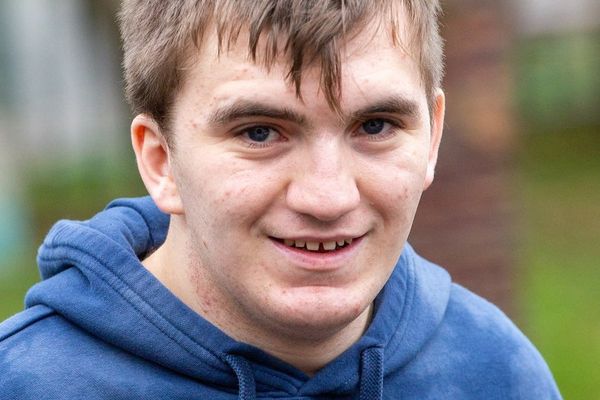
Hawi al-Azim (Iraq) (AFP) - Bullet holes riddle the concrete watchtower of a remote Iraqi army outpost north of Baghdad, a sign of the Islamic State group's night-time attack that killed 11 soldiers.
The small riverside base is ringed by sand berms, a shallow moat and coils of razor wire, and three soldiers in mismatched uniforms are busy strengthening it with cement and cinder blocks.
It has been almost three years since the extremist Sunni group lost its self-proclaimed "caliphate" stretching across much of Iraq and Syria after long and gruelling battles.
But IS fighters remain active in a low-level insurgency and have recently stepped up their hit-and-run attacks against anyone in uniform, or anyone else who dares to stand up to them.
"They hide in holes dug into the ground or in abandoned houses," said a senior Iraqi army officer during a visit Monday to the dusty outpost in the eastern province of Diyala.
"This is also where they hide their explosives and weapons," he told AFP during the trip, asking not to be identified.
The unenviable task of Iraq's security forces is to hunt IS cells in a vast territory that stretches from Baghdad to Kirkuk, nearly 250 kilometres (about 150 miles) to the north, straddling three provinces.
At this outpost, one of a string of bases along the banks of the Adhaim river, IS fighters struck in a bitterly cold night, last Friday at 2:30 am, killing the 11 soldiers.
The ambush came as, across the border in Syria, more than 100 IS fighters launched their biggest attack in years, on a prison in the northeastern city of Hasakeh, attempting to free fellow fighters.
The fierce battle there has raged on, with the death toll topping 160 on Tuesday, as US-backed Kurdish forces surrounded the prison, while IS fighters remained holed up inside with thousands of detainees.
Bloody cat-and-mouse game
In Iraq, troops and police have been sweeping the area along the Adhaim river since the attack last week, in the latest chapter of a bloody cat-and-mouse game with the jihadists.
"We have been in this area for four days," said Captain Azhar al-Juburi of the Federal Police Rapid Response Force as he returned from a patrol.
"We haven't had any direct confrontation, but we have arrested terrorists."
The local soldiers were not allowed to speak with visiting press, but the senior army officer explained that the jihadists "took advantage of the bad weather and the early hour to attack".
It was "the first time that IS has attacked us directly", he said."They did not have the means until now.They were limited to planting improvised explosive devices and sniper fire."
Diyala's provincial governor Muthanna al-Tamimi had another explanation, blaming "the negligence of the soldiers".
"The base is fortified," he said after the attack."There is a thermal camera, night vision goggles and a concrete watchtower."
'IS reorganising troops'
Whatever the case, said Iraqi analyst Imad Allou, the attack does underscore that IS "is trying to reorganise its troops and activities in Iraq".
A UN report last year estimated that around 10,000 IS fighters remained active across Iraq and Syria.
The ongoing IS presence in Syria is largely in desert hideouts in the east of the country, where the Kurds maintain a semi-autonomous administration that borders Iraq.
In Iraq, IS is most active in the north but has also claimed bomb attacks on civilian targets elsewhere, including a blast last July on a market in Sadr city, a Shiite suburb of Baghdad, that killed dozens.
The anti-IS battle has become all the more perilous since Iraq has lost the direct support of a US-led international anti-jihadist coalition, especially air support.
Its 3,500 troops, including 2,500 Americans, put an end to their combat mission last year to limit themselves to advising and training their Iraqi counterparts.
Does this worry the Iraqi senior officer?
"We have our own air force, and we rely on it," he said."As for the rest, it is not me who decides."







